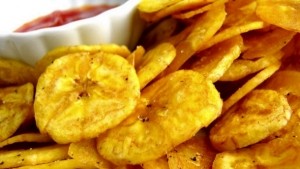Far East in focus
Study: Childhood fruit consumption could reduce future obesity risk

The study, published in the journal Nutrients, was led by Kang Jae-hun and Heo Yang-im at Seoul Paik Hospital, and conducted across a final total of 345 students over four years from 2008.
Based on nutritional diaries completed by the students throughout the study, the researchers divided their sugar sources into specific categories, including milk, fruits, sweets and sweet beverages.
Follow-up analysis at four-year intervals showed that adolescents who had a higher intake of sugar through fruits showed an obesity index improvement. At the same time, those who took in most sugar through sweets, jam and sugary drinks had a 2.8-times higher risk of contracting metabolic diseases such as neutral fat, blood sugar, and abnormal blood pressure.
“Fruits have high sugar levels, but they are also abundant with fibre and vitamins, which means that those sugars have different effects on the human body compared to artificial sugars,” the authors wrote.
They added: “Among children and adolescents, differences in consumption of sugar from fruit and from sugar-sweetened beverages, might play an important role in the risks of adiposity and metabolic disease. Our results further suggest the need for targeted strategies for reducing sugar intake.”
More stories from the Far East…
Japan assesses halal demand ahead of Olympics
Japan must look to the Middle East or Brunei in a bid improve its halal provision in time for the 2020 Olympics, the country’s foreign affairs ministry has said.
As Tokyo prepares to host the Summer Games in four years, Tetsuya Otsuru, director of the ministry’s economic policy division, said the event would draw an influx of Muslim visitors to Japan.
As the country has a limited tradition in providing halal food, Otsuru said it had much to learn from Muslim countries, with a focus adopting the standards of Middle East or southeast Asian countries with more experience in halal certification.
“Japanese restaurant businesses may think such Middle East certification, for example from the UAE, would mean something and will ease the process of obtaining halal certificates from Muslim countries in Asean including Brunei and Malaysia,” he told journalists.
“But at the moment, there have not been any concrete steps yet, but we do need to create and increase dialogue even with our private sector companies, for example on Brunei halal certificates in the future,” Otsuru said.
Another official said there would be a cost for Japanese companies to secure appropriate certification.
“So we will try to give them financial support. And also we try to support them so that they can set up facilities for the processing or treatment of halal meat,” Mie Katsun of the Food Industry Affairs bureau, said.
Korea to ramp up food exports in wake of FTA with China
South Korea’s government will provide more support to farmers and food manufacturers to achieve its goal of exporting US$8.1bn in food and agriculture products this year.
The target has been set in light of last year’s free-trade agreement with China, and marks an increase by one-third over last year’s total shipments, worth US$6.1bn.
The announcement, by the agriculture ministry, comes as South Korean food exports dropped by 5.9% January, year on year, while overall shipments fell by 18.5%.
"The current situation must be seen as an emergency," agriculture minister Lee Dong-phil said, adding that the government would provide support to prop up exports.
To meet the target, a task force will be created to help South Korean farmers and food manufacturers use the free trade agreement to their advantage. The country intends to ship US$1.4bn worth of products to China this year, followed by US$1.3bn to Japan.
The ministry will also offer financing to improve marketing to Muslim countries, which it said might account for US$500m of halal food and farm exports this year.
Taiwan to tweak nutrition labelling regulations
Taiwan’s regulators plan to revise food labelling requirements in July after a period of public consultation.
According to the Chemlinked Food Portal, the new rules will require “food for special medical purposes” to be labelled along the lines of “not suitable for consumption by people in good health, and should be consumed under the guidance of doctors or dieticians”.
Food containing protein to provide basic energy and nutrients for patients will no longer be be required to state: “This product should not be consumed alone for balanced nutrition.”
And low-sodium table salt and soy sauce not intended for not intended for medical purposes will no longer be regarded or labelled as such.
Morbid obesity in Korean schools has doubled in 10 years
Children have grown wider faster than they have become taller over the last decade in South Korea, where childhood obesity rates have shot up.
According to the Korean education ministry, which studied the physiques and exercise habits of almost 85,000 schoolchildren at 764 schools across the country last year, serious obesity has more than doubled since 2005, accounting for 1.6% of the students surveyed.
It found that sixth graders, ninth graders and seniors all gained weight compared to 10 years ago, and 15.6% of the subjects now weigh more than the average for their age group.
The average height of a sixth-grade boy is 151.4cm, 2.3 cm taller than a decade ago, and that of those in the ninth grade is 169.7 cm, 1.2 cm taller than 2005.
12th-grade boys have grown slightly shorter on average at 173.5 cm, compared to 173.6 cm in 2005. The average height of 12th grade girls is 160.9 cm, 0.1 cm shorter than in 2005.
Meanwhile, the number of youngsters who eat fast food increased among all age groups compared to 2014 and gets worse as they grow older.
The number who skip breakfast also increases as they get older, while the amount of vegetable and milk consumption falls.
Korea doubles snack imports in 10 years
South Korea has seen the volume of snack foods imported into the country almost double over the last decade to 121,100 tonnes last year.
The figure is 1.8 times higher than snack imports in 2005—equivalent to an annual growth rate of 7.6%, according to figures released by the Korean food ministry.
The value of these imports has grown even more dramatically, from US$212m in 2005 to US$634m in 2015.
America was the top exporter last year, followed by China, Germany and Malaysia.
Germany saw the biggest growth in the 10-year period, having increased its confectionary exports to Korea by 1,350%. Imports from Malaysia grew by a factor of over nine, while those from Indonesia grew by almost 400%.











